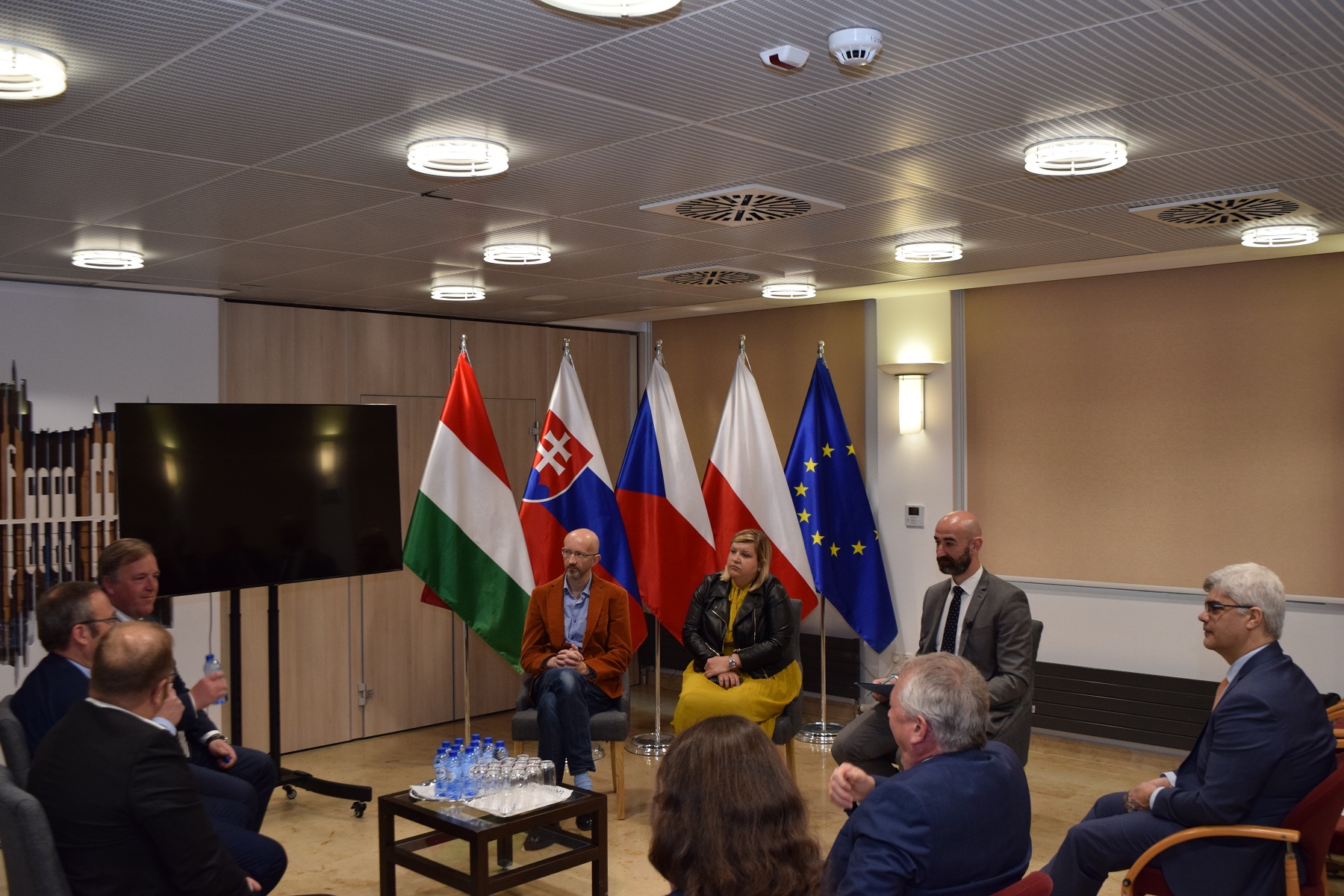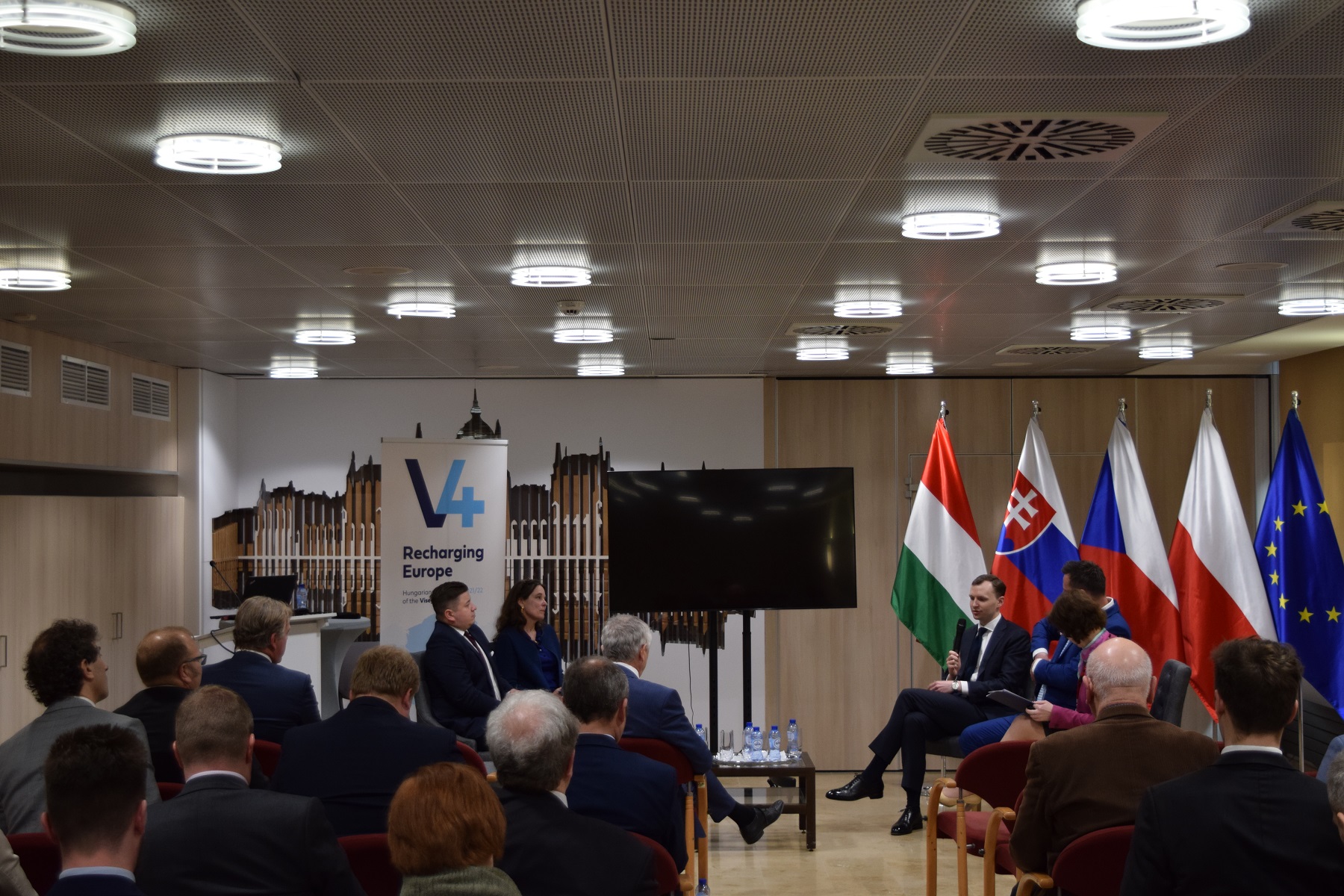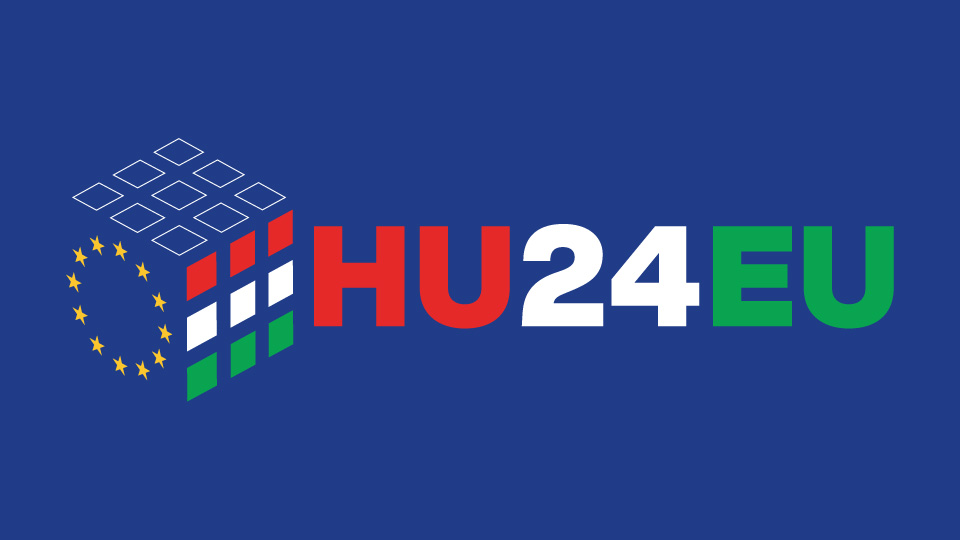In the framework of the Hungarian V4 Presidency the Permanent Representation of Hungary to the EU organized a half-day conference on sustainable and smart mobility solutions in the V4 countries. At the conference we have showcased several solutions, incentives and initiatives from the region which aims at reducing greenhouse gas emissions in the transport sector in line with the European legislation.
In his opening speech Gábor Baranyai Deputy Permanent Representative emphasised that V4 countries have made serious efforts in the field of green mobility which are hardly known therefore our aim is to present these efforts in Brussels.

Dr. Péter Kaderják, head of Zero Carbon Hub (Budapest) in his keynote speech underlined that Hungary invested significantly in the decarbonisation of the transport sector: railway development, support scheme for the greening of the public transport, incentives for purchasing electric vehicles etc. Automotive sector contributes greatly to the Hungarian economy. Due to the huge investments in the battery production which been made recently, Hungary is in a favourable position with regard to the green transition of the mobility sector.
Joaquim Nunes de Almeida Director of the European Commission responsible for mobility and energy intensive industries (DG GROW) presented the Commission’s initiatives and legislative proposals in this field. He praised the developed automotive industry of the region and the extended battery supply chain established in Hungary in Poland. Mr Nunes de Almeida emphasised that the green transition needs to be fair as well therefore reskilling of the workers in the automotive industry is pivotal.

Among the showcases Veronika Erős, project leader of the Green Bus Program (Hungary) shared the experiences of the program. Radek Čech Director of International Relations Department of the Czech Railway Infrastructure Manager presented the Czech plans for high speed railway development. Péter Simon (Hungary) introduced the ecosystem being built around the Zala Zone autonomous testbed which provides an opportunity for developing and testing solutions in the field of electomobility as well. Johan Eidhagen from Wizzair gave an overview on the company’s effort in order to reduce greenhouse gas emissions.
During the panel discussions the panellists agreed that the different transport modalities do not compete with each other. Intelligent transport solutions can help the passengers to choose the best combination of transportation which leads to decreased emissions.
In the second session showcases focused on enabling technologies. Krzysztof Burda, President of Polish Chamber for E-Mobility Development presented their efforts on promoting electromobility in Poland.
Agevolt is a startup from Slovakia which invented intelligent chargers for e-vehicles. Jozef Ťapajna co-funder explained that price and availability of the chargers as well as the length of the charging hinder the penetration of e-vehicles in Slovakia. Their products provide solution for these problems.
Aleksander Naumann from Hydrogen Poland Association gave an overview on the Polish endeavours in the field of development of hydrogen technology.
During the panel discussions participants agreed that technological neutrality can enhance the success of green transition and can reduce negative socio-economic consequences.
The presentations of the conference are available at the website of the Permanent Representation clicking here.



